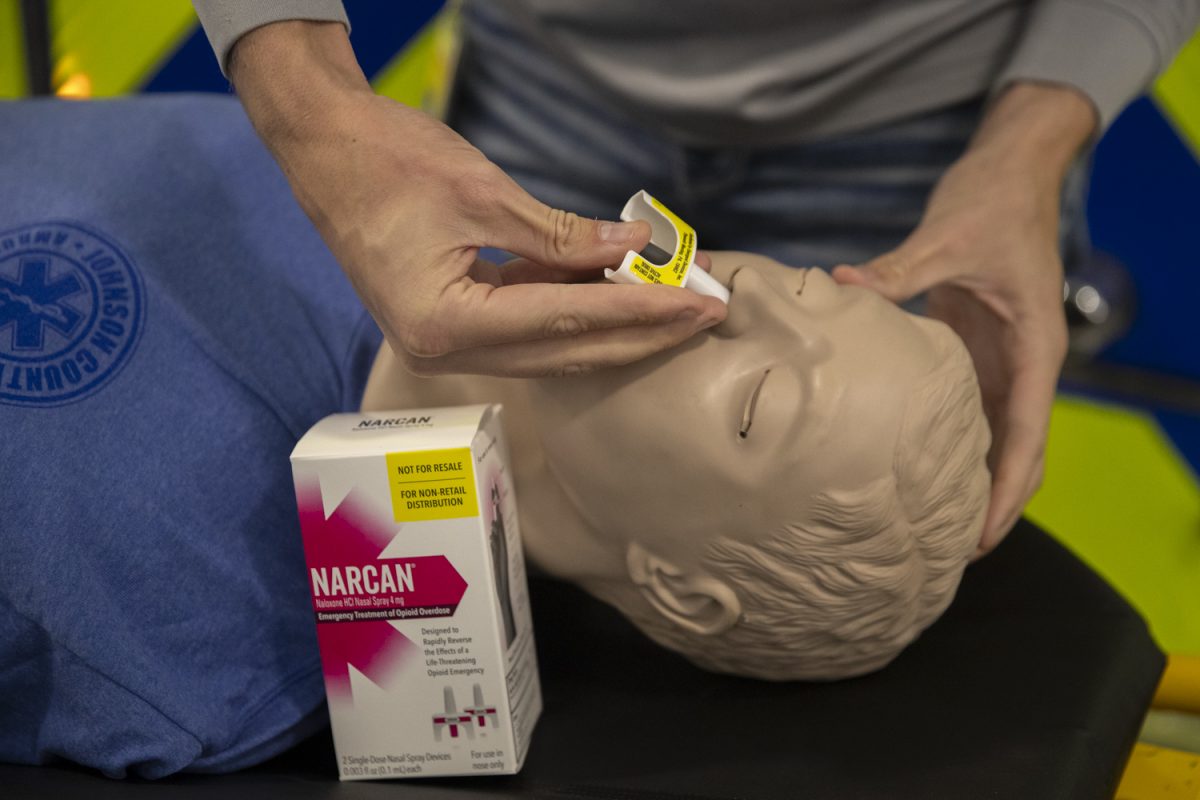Throughout 2023, Johnson County Public Health reported 10 opioid overdose deaths — all attributed to fentanyl. Johnson County and Iowa as a whole fall in line with the national trend of opioid — particularly fentanyl — deaths climbing ever since the pandemic.
To address this trend, Johnson County Ambulance Services, or JCAS, has started the planning phase of a new distribution program for Narcan, a medication used to reverse opioid overdoses that is also known as naloxone.
JCAS plans to not only use the program to make Narcan more accessible and educate residents on opioid safety, but also to leave behind Narcan kits with trusted family and friends of residents who have experienced overdoses.
JCAS Lead Paramedic Street Conner described what led up to the planning of the program.
“We saw that the number of opioid overdose deaths have doubled since 2018, and the presence of synthetic drugs in our communities continues to rise,” he said. “We continue to run into it through EMS calls and hospitals.”
Similar programs are starting all across the country to combat the nationwide crisis. JCAS Paramedic Field Supervisor Andreas Wilz said the community education efforts they hope to implement will be just as important as the Narcan kits.
“The big goal behind it is to equip families and community members with knowledge and resources to effectively treat an overdose in the event that they find one,” he said.
A large part of this educational effort hopes to tear away the stigmatization residents feel toward medically prescribed opioid medication.
“911 [callers] have this fear of overall opioids, and people won’t take their pain medication at home because they’re fearful of overdosing, or they get afraid of medications that we’re going to administer,” Conner said. “So, we hope to increase education about this and how to properly use your medications at home, as well as what drugs to avoid.”
Wilz said the program is in the final planning stages and the team is excited to work with community partners such as GuideLink or University of Iowa clinics to strategically place Narcan kits for distribution.
RELATED: UI implements Narcan in residence halls to combat opioid overdoses
“The last step that we are waiting on is that our medical director has to make a final overall protocol for us,” he said. “The goal for full program rollout is the first quarter of 2025.”
Overall perception of the program appears to build up smoothly. Johnson County Public Health’s Chronic Disease Prevention Specialist Lisa Parlato described the benefits such programs can bring.
“Programs that distribute and increase access to naloxone are very important and effective in preventing overdose deaths,” she wrote in an email to The Daily Iowan. “We want to get [Narcan] into the hands of as many folks as possible, especially those who are close to this issue and may benefit most.”
Parlato also reinforced the reasons for implementing the program in the first place.
“The trends in our county align with trends across the country, with a rise in synthetic opioids around 2013-2014 contributing to the national opioid crisis and overdose-related deaths rising again during the COVID-19 pandemic,” she wrote.



